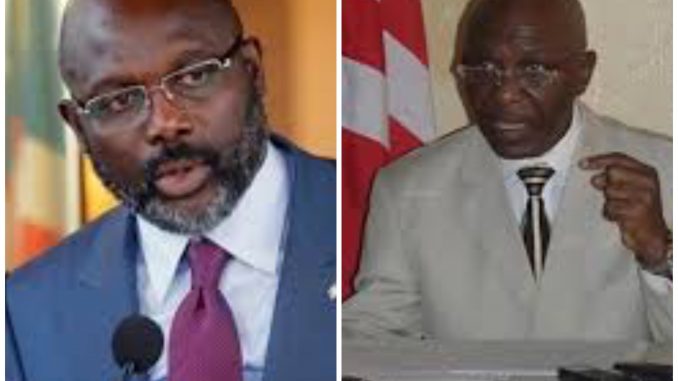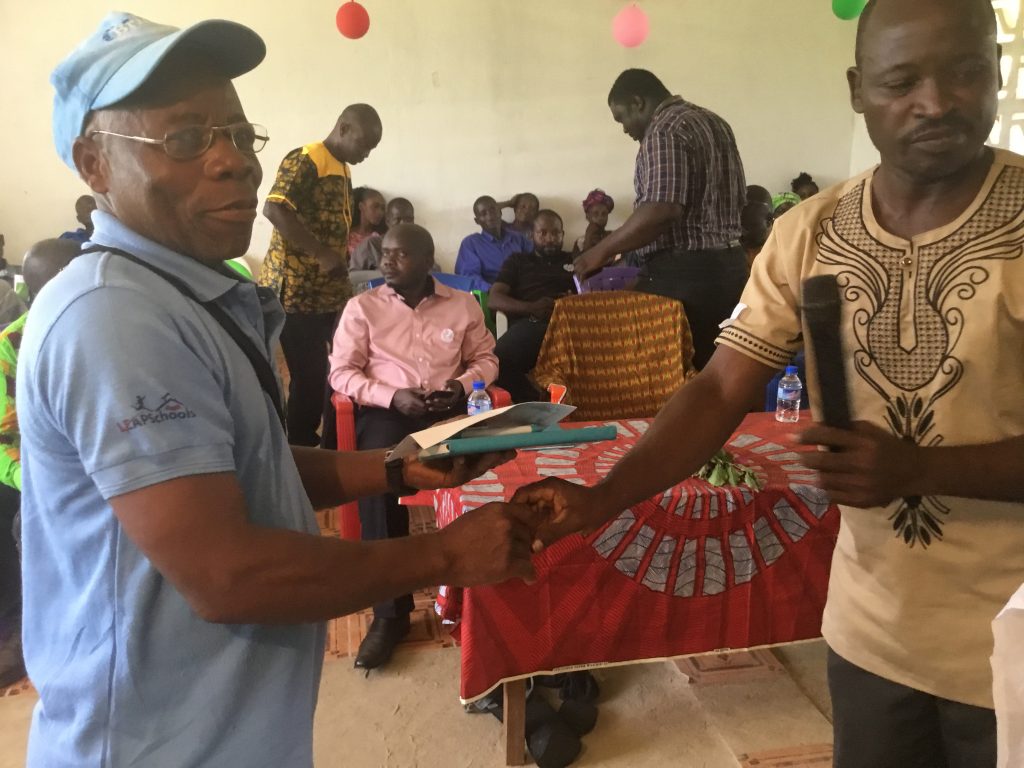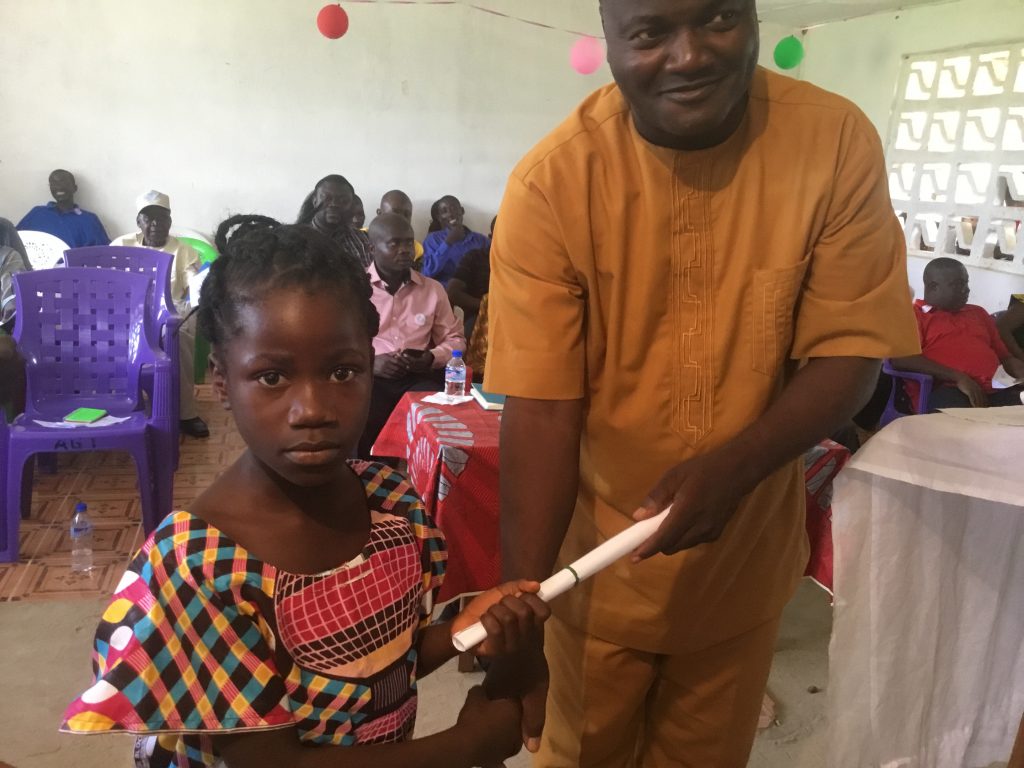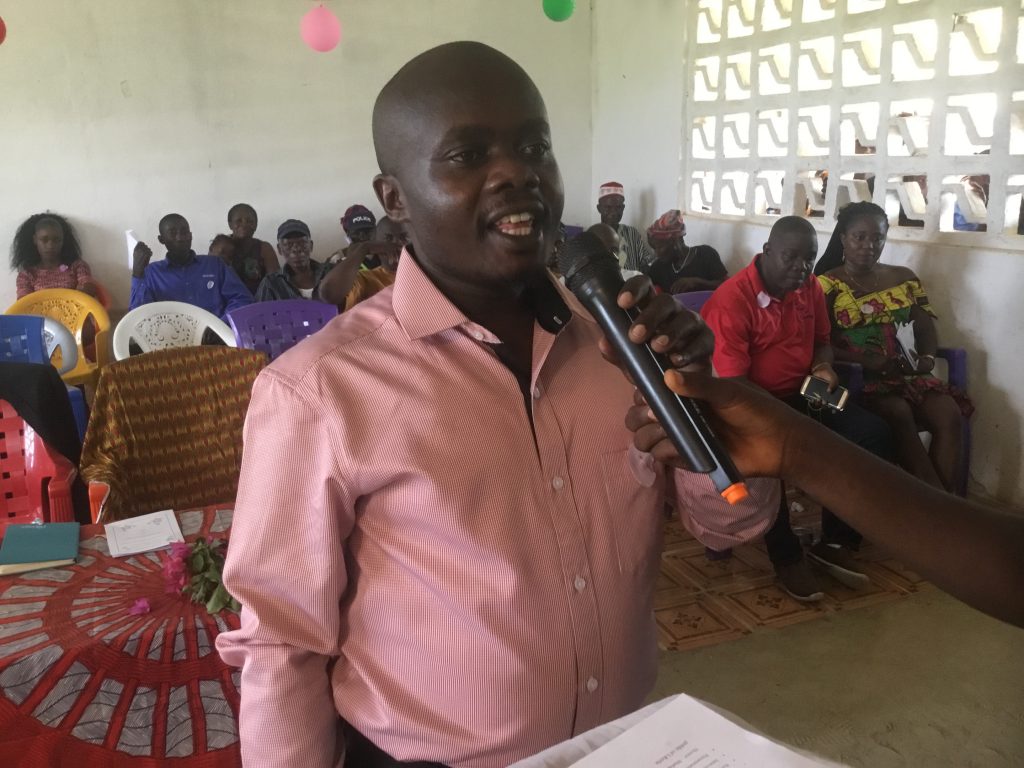
With the country having gone through a devastating civil war and the debilitating effects of Ebola, education reformers in Liberia needed to make a radical U-turn in order to transform the public education system. Out of this desperation for change, the Ministry of Education announced in 2016 the Partnership for Schools (PSL) initiative which has now been renamed to the Liberian Education Accelerated Program (LEAP) under the Weah-led government.
At the onset of this drastic policy shift, Education Minister George K. Werner proudly declared that “Thousands of children are enrolled in schools, taught by re-invigorated and re-trained government teachers, supported by energized parents and resilient communities. I am proud of what has been achieved so far. The future of hundreds of thousands of Liberian children, their communities and our nation is at stake. We must not fail them,” Werner said.
Despite some outpouring of criticisms from public school administrators who were not convinced of the initiative, the erstwhile Education Minister stayed the course. Now, supporting his predecessor’s vigor for a paradigm shift in the Liberian education system, current Education Minister Professor D. Ansu Sonni too recently informed a global gathering of public-private partnership providers and sponsors that his government fully supports the program.
This is what Minister Sonii had to say at the Global Skills and Education Forum recently in Dubai about the LEAP initiative that currently serves a little over 70,000 Liberian children.
“Our experience with the PPPs has been about three years. There are a number of targeted results that we have seen and experienced. We believe that under the current circumstances, the current financial constraints of my government, the need to have a partnership in these areas of teaching and learning, we believe with what we’ve seen, the experiences we’ve had, the number of students benefiting so far, the quality of teachers that get into this classroom, the type of supervision being provided, the type of educational supplies in addition to what we have given, the enhancement of curriculum for these kids; we shall continue with it, we have made a determination already and I think it works.”
Real-time success story
Fast forward to a fortnight ago, Bridge Liberia, one of the government’s LEAP service providers, was marking the official end of the 2018 academic calendar with graduation ceremonies at all of its 68 schools across 10 of the 15 counties in Liberia.
Marked by outstanding academic performances and presentations from graduates of the kindergarten and sixth-grade classes, the closing exercises saw parents, schools administrators, county education officials and senior government officials praising the outcomes of the Bridge schools in Liberia just three years after signing of the partnership with the government of Liberia.

From Bassa to Montserrado, Bong to Nimba and far into the Southeast, graduation ceremonies went in the air with traditional dances at some points, local county authorities attending at some point and students displaying their skills in reading, writing, and skills that wooed onlookers. Parents, teachers and other stakeholders also got appreciated for a splendid job done throughout the school year.

At one of the closing programs at the Sanoyea Elementary Public School in Sanoyea, Bong County, the Director of Communications at the Ministry of Education who proxied for Minister Sonii, conveyed the Ministry’s profound high impression of the LEAP initiative, especially Bridge Liberia.
“When we allow partners to take over our school, it means they we believe they are worthy and capable to deliver.” Mr. Bleetan intoned, noting, “If Bridge had not come here to help us provide free education, your children would most likely not be graduating today. These are the future leaders of Liberia- our next generation of engineers, medical doctors, lawyers, superintendents, county and district education officers, lawmakers and presidents. Continue sending your children to school because when you no longer able to provide, they will be there for you.”
For his part, Bong County Education Officer Armah Varfee offered praise for the significant level of progress in the school, hoping that the program would be replicated in every district across Bong County.
Speaking on behalf of the parents, Mr. James Kaine of Sinoyea heaped praise on the Ministry of Education and Bridge Liberia for bringing light into the lives of Sanoyea citizens. “
“As you can see from the special performance of our Kindergarten graduates, these children are making good progress and they are so young. We are very proud of their performance. Before Bridge came here, our children could not even read well,” Mr. Kaine narrated.
“As for me, I thank God for Bridge and this government because I don’t know how my children would have gone to school. And I am so happy that my little daughter who graduated from K2 today can read so well. We are really blessed,” Madam Josephine Rennie of Sanoyea stated.
David Kezeli is the principal of Sanoyea Elementary Public School. He disclosed that the Government invited the LEAP provider to support the learning aspects of Sanoyea School because of the need to improve the quality of education through training teachers and improving materials.
“Things started to improve for the school so quickly. Teachers received extra training and now spend more time teaching; they have better support. There are always sufficient textbooks, students learning materials and teaching aids. The learning hours have increased from five hours to eights hours daily. The learning has become more student-centered. Both teachers and principal are constantly supported through teacher observation which happens daily where feedback is provided for continuous improvement.”
Of course, these improvements are not without their own challenges. The improvements mean that more children in the community now want to come to school, thus enrollment has risen from 277 in 2015 to 408 in the academic year.

“The changes have been particularly helpful for the girl students of Sanoyea. From the first year of the program in 2016 to this year enrollment of girls has increased from 117 to 195,” David Kezeli, Principal of Sanoyea Elementary Public School disclosed.
In fact, shattering the cultural glass ceiling of male preference and excellence over their female counterparts, students Irene David and Helena Dolo became valedictorians of the Six graders and the Kindergarten graduates. Both students, who received academic awards along with some outstanding instructors and parents, expressed heartfelt appreciation to the Government for bringing free and quality education to Sanoyea.
“We thank God for our family and Bridge for making us to prove that we too can do better than boys,” Irene Dolo of the graduating sixth-grade class stated.
The success of public-partnership initiative and the Bridge Liberia test case is summed up in former Education Minister George Werner’s current musings on educational reform:
“When we embarked on creating the Partnership Schools for Liberia (PSL now LEAP), we had no blueprint. As a result, we had to learn quickly and iterate by trial and error. I hope that we can provide inspiration and helpful tactics for other Education Ministers facing similar challenges within their education systems. Among other things, offering case studies and models (LEAP) for education ministers to create a powerful strategy to improve the quality of education quickly is vital in uncharted waters. Most importantly, though, vision, courage, conviction, and political will is required to get beyond the polemic into the implementation,” Werner maintains.
Bridge is a network of schools which began in Kenya in 2007. They believe that ongoing teacher training and support, that empowers teachers to succeed is vital to tackle the learning deficit not only in Liberia but elsewhere across the continent. They have brought this belief to over 1,000 (mainly public ) schools and have now educated half a million children in the last decade. Through Government partnerships, Bridge aims to ensure millions of children currently being failed have access to a life-changing education. To achieve this they are supporting Governments to transform their public education systems, alongside running community schools. Liberia has led the way.

Be the first to comment